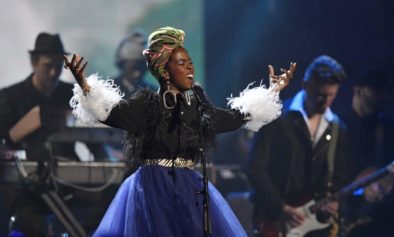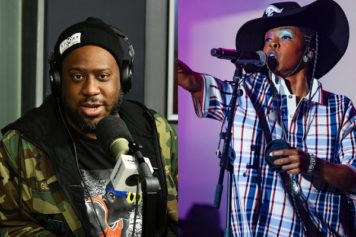Had you been watching The Tonight Show with Jay Leno one Monday night last March, you might have seen pianist Robert Glasper leading his Experiment band from the NBC studios in Burbank, Calif. Had you preferred the Late Show with David Letterman, you might have seen bassist and singer Esperanza Spalding front a horn-heavy ensemble at the Ed Sullivan Theater in midtown Manhattan.
The coincidence was striking. For one night, the two prime late-night music showcases went to two improvising musicians: both African-American, well under 40 years old and well respected by the jazz community. That community is generally unfamiliar with mainstream attention. Suddenly, two of its representatives were on national television at once, a continent apart.
How were they in a position to do this? The music they chose to play certainly had something to do with it. Both featured a strong lead female vocalist, backing vocals, tunes with rhythmic and harmonic twists unusual for today’s pop, beats that wouldn’t fly in bebop, improvisation filling the spaces in between rather than extended solo features. It wasn’t straight-ahead jazz.
Both also were promoting new albums. “Radio Song” leads off Spalding’s Radio Music Society, while “Gonna Be Alright,” featuring the vocalist Ledisi, comes from Glasper’s Black Radio. (“Gonna Be Alright” is the vocal version of “F.T.B.”, a piece Glasper first recorded for piano trio years earlier.) The presence of the term “radio” is a tip-off: These records were aimed toward mainstream pop broadcasters.
Their visions of what might make for good radio are suffused in black identity. Though the title Black Radio is officially inspired by the indestructible black boxes in airplanes, an alternate meaning resonates loudly on an album full of R&B and hip-hop leanings performed exclusively by African American musicians. Radio Music Society is less forward with its messaging, and less specific about its pop influences, but its lead single “Black Gold” is about taking pride in African origins, and it comes with a video which unsubtly drives the point home.
These visions didn’t ultimately result in big hits with actual commercial radio stations. According to Blue Note Records, the Glasper single “Ah Yeah,” with Musiq Soulchild and Chrisette Michele, peaked at No. 22 on Urban Adult Contemporary radio. Figures weren’t available from Spalding’s label at press time, but none of the songs appeared on Billboard’s pop or R&B/hip-hop charts.
But the recordings still reached many ears. As of last week, Glasper’s Black Radio had sold over 128,000 copies worldwide, and Spalding’s Radio Music Society — the first full-length album from her since her 2011 Best New Artist Grammy award — peaked at No. 10 on the Billboard 200 albums ranking. These are huge figures for jazz artists, even the most prominent, who rarely reach a tenth of those sales figures or appear on any charts to begin with.
Read more: Patrick Jarenwattananon, NPR


